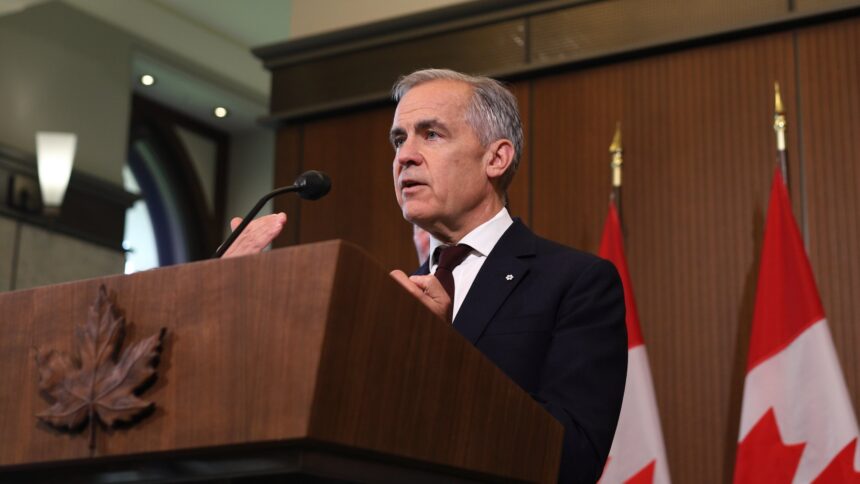Late Wednesday evening, after a marathon debate session that stretched well into the night, the House of Commons passed the controversial Bill C-5, officially known as the National Interest Projects Act. The legislation sailed through with a vote of 178-142 along party lines, following an unprecedented acceleration of the parliamentary approval process.
The bill grants the federal government sweeping new powers to designate and fast-track infrastructure projects deemed to be “in the national interest,” raising both praise from industry leaders and alarm among environmental advocates and Indigenous communities.
“This legislation will finally break the logjam that has held back critical infrastructure projects for decades,” said Natural Resources Minister Elizabeth Chen during her closing remarks. “Canadians expect us to balance environmental protection with economic progress, and Bill C-5 delivers exactly that balanced approach.”
I’ve spent the past three days in the parliamentary gallery watching this unfold. The government’s urgency was palpable – they used time allocation twice to limit debate, with committee review compressed into just four hours on Monday evening.
What caught many observers by surprise was the sheer speed of the process. Lisa Raitt, former Conservative cabinet minister now with the Canadian Chamber of Commerce, noted, “I’ve never seen legislation of this magnitude move through the House with such velocity. The business community welcomes this efficiency, but the process raises legitimate questions.”
The bill establishes a new National Projects Review Board with authority to override provincial permitting processes and abbreviate environmental assessments for designated projects. Housing developments, critical mineral mines, renewable energy facilities, and oil and gas infrastructure could all qualify for the expedited process.
Walking through the parliamentary corridors after the vote, I spoke with Jane Goodwin, Chief of the Riverlake First Nation, who had traveled to Ottawa to witness the proceedings. “This feels like a return to the old ways, where decisions about our lands get made without meaningful consultation,” she told me, her voice tight with frustration. “The duty to consult is constitutional. It can’t simply be streamlined away.”
The Assembly of First Nations released a statement yesterday claiming the bill “fundamentally undermines” the principles established in the UN Declaration on the Rights of Indigenous Peoples, which Canada adopted into law in 2021.
Environmental groups have raised equally strong concerns. A recent analysis by the Canadian Environmental Law Association suggests the expedited review process could reduce environmental assessment timeframes by up to 70 percent for major projects.
“The devil is entirely in the details here,” explained Dr. Thomas Harrison, professor of environmental policy at Queen’s University. “Efficiency is important, but not at the expense of rigorous science. Some ecological impacts simply cannot be properly evaluated on a compressed timeline.”
Government officials counter that the legislation maintains environmental protections while removing unnecessary bureaucratic hurdles. According to data from the Major Projects Management Office, the average major infrastructure project currently takes 4.3 years to navigate federal approvals alone – a timeline the government hopes to reduce to under 18 months.
During a tense moment in yesterday’s debate, Green Party MP Sarah Miller held up a stack of papers representing hundreds of emails from constituents opposed to the bill. “What does it say about our democracy when legislation with such far-reaching consequences receives less scrutiny than a municipal zoning change?” she asked the chamber.
Down in the parliamentary cafeteria this morning, I caught up with Jason Reynolds, a Conservative MP who sits on the Natural Resources committee. Between sips of coffee, he offered a surprisingly nuanced perspective. “We support streamlining approvals, but this bill hands unprecedented discretionary power to cabinet. That’s not accountability – it’s a power grab wrapped in economic urgency.”
The legislation now heads to the Senate, where several independent senators have already signaled their intent to scrutinize the bill more thoroughly than was possible in the Commons. Senator Rosa Gallagher told me via phone that she anticipates “a more deliberative process that gives voice to those who feel their concerns have been steamrolled.”
Recent polling from Angus Reid shows Canadians remain deeply divided on the issue, with 48% supporting measures to expedite major projects, while 43% express concern about reduced environmental protections. The regional variations are striking – support reaches 67% in Alberta but falls to just 31% in Quebec.
What makes this legislation particularly significant is its potential to reshape Canada’s approach to major infrastructure development for decades. A recent analysis by the C.D. Howe Institute suggests the bill could unlock over $80 billion in currently stalled projects across the country.
The Canadian Construction Association praised the legislation, estimating it could generate more than 100,000 jobs in the next five years. “This isn’t just about building things faster,” said Association President Maria Duarte. “It’s about certainty for investors, workers, and communities.”
For communities living near potential project sites, however, the concerns are immediate and personal. Last week, I visited Fort McMurray, where residents still remember the lengthy but ultimately valuable consultations around major oilsands expansions.
“Sometimes the process feels frustrating, but it forced better projects,” local environmental advocate John Timmins told me as we toured reclaimed land near the community. “My fear is that we’re trading long-term sustainability for short-term political wins.”
The bill now moves to the Senate, where observers expect more thorough examination of its provisions. With a federal election looming next year, the government appears determined to have this legislation fully implemented before Canadians go to the polls.
What remains unclear is whether Bill C-5 truly represents the balanced approach the government claims or if it prioritizes development at the expense of other values Canadians hold dear. As one senator whispered to me yesterday, “The question isn’t whether we need more efficient processes – it’s whether this particular solution fixes the right problems.”






